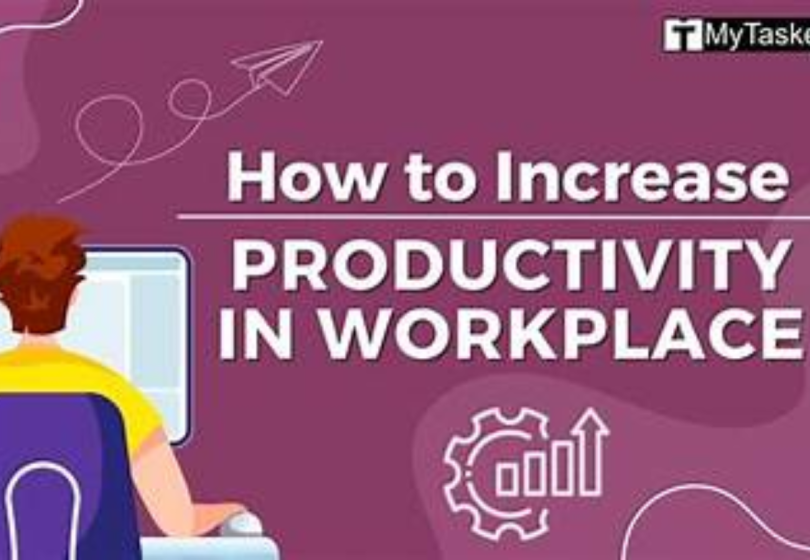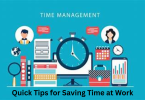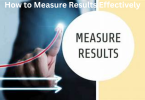If you’ve ever felt like the hours in your day just aren’t enough, you’re not alone. Many people struggle to keep up with tasks, deadlines, and distractions at work. The good news is that learning how to improve work efficiency can completely change the way you manage your time and energy. Instead of working longer hours, you’ll learn to work smarter—getting more done with less stress while still having time for yourself.
What Does “Work Efficiency” Really Mean?
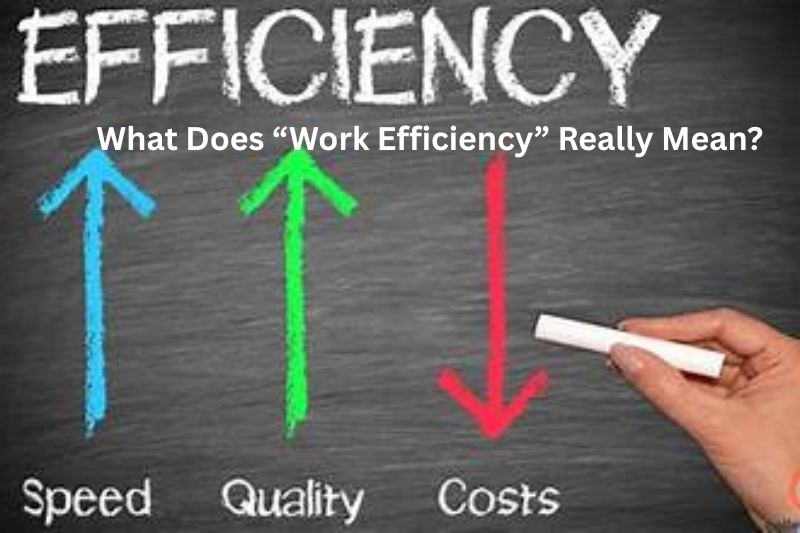
Work efficiency is the ability to complete tasks effectively while minimizing wasted time, energy, and resources. It’s about smart work, not just hard work.
Imagine two employees:
- One spends 10 hours at the office, constantly switching tasks, checking emails, and multitasking.
- The other works 6 focused hours, prioritizes key tasks, and avoids distractions.
Guess who’s more efficient? Exactly—the second one.
Why Improving Work Efficiency Matters
Before we dive into how, let’s talk about why it matters:
- You get more done in less time.
- You reduce stress and avoid last-minute panic.
- You free up time for personal growth, hobbies, or family.
- You feel more in control and motivated at work.
Now, let’s go through some proven ways to boost your efficiency.
1. Set Clear Priorities and Goals
One of the easiest ways to lose efficiency is trying to do everything at once. Without priorities, you’ll spread yourself too thin.
Practical Tips:
- Use the Eisenhower Matrix: Separate tasks into urgent/important, important/not urgent, urgent/not important, and neither.
- Write down your top 3 tasks every morning.
- Align tasks with bigger goals so you’re always moving forward, not sideways.
2. Manage Your Time Like a Pro
Time is your most valuable resource. Learning to use it wisely is at the heart of improving efficiency.
Techniques You Can Try:
- Pomodoro Technique: 25 minutes of deep work, 5-minute break. Repeat.
- Time Blocking: Schedule chunks of time for specific tasks instead of multitasking.
- Batch Processing: Group similar tasks (emails, calls, reports) together to avoid constant context switching.
3. Create a Productive Workspace
Your environment directly affects your performance. A cluttered desk or chaotic digital workspace wastes time and drains focus.
How to Fix It:
- Keep only essential items on your desk.
- Use folders and clear labels for digital files.
- Try noise-canceling headphones if your environment is noisy.
- End your day by resetting your workspace for tomorrow.
4. Use the Right Tools and Technology
In today’s world, technology can save you hours if you use it smartly. The trick is not to overcomplicate things with too many tools.
Recommended Tools:
- Project Management: Trello, Asana, Notion.
- Communication: Slack, Microsoft Teams.
- Automation: Zapier, IFTTT.
- Focus: Website blockers like Freedom or Cold Turkey.
5. Learn the Art of Delegation
Many people think efficiency means doing everything themselves. But that actually slows you down. Delegation is a skill that lets you focus on what matters most.
How to Delegate Well:
- Assign tasks to people who are skilled in them.
- Provide clear instructions and deadlines.
- Trust the process and avoid micromanaging.
6. Take Care of Your Body and Mind
You’re not a robot. Efficiency depends on your physical and mental energy. A tired brain or stressed body will never be at peak performance.
Self-Care Tips for Efficiency:
- Get 7–8 hours of quality sleep.
- Take short breaks to stretch or walk.
- Eat balanced meals—fuel your body for focus.
- Practice mindfulness or meditation to reset your mind.
You may also like to read these posts:
How to Set Business Goals: A Complete, Practical Guide
How to Use Digital Tools for Success
How to Build a Growth Strategy: A Complete, Practical Guide
How to Measure Results Effectively: A Complete Guide
7. Keep Reviewing and Improving
Efficiency isn’t a one-time fix. It’s a habit you build over time. The key is to constantly review what’s working and what’s not.
Weekly Reflection Questions:
- What did I waste the most time on?
- What system or tool helped me save time?
- What small change can I make next week to improve?
Benefits of Improving Work Efficiency
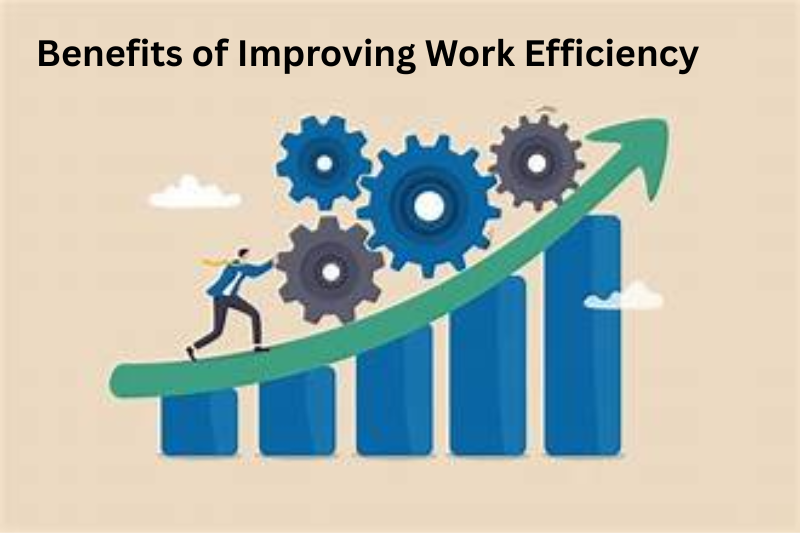
When you actively work on efficiency, here’s what you’ll gain:
Increased Productivity – You’ll get more done in less time.
Reduced Stress – No more rushing to meet deadlines.
Better Work-Life Balance – More time for family, friends, and hobbies.
Higher Quality Work – Focused effort leads to better outcomes.
Career Growth – Efficient workers are often seen as reliable and capable leaders.
Possible Drawbacks of Focusing on Work Efficiency
Like most things, focusing too much on efficiency has a few downsides:
Risk of Burnout – If you try to optimize every second, you may overwork yourself.
Creativity Loss – Efficiency sometimes prioritizes speed over creativity, which needs time and flexibility.
Over-Reliance on Tools – Too many apps or systems can become a distraction instead of a solution.
Pressure to Perform – Always striving for efficiency might create unnecessary pressure and guilt when you slow down.
How to Balance:
The key is to aim for sustainable efficiency. Work smarter, but don’t eliminate downtime or creativity. Sometimes, slowing down actually makes you more effective in the long run.
Final Thoughts
Learning how to improve work efficiency is about finding the balance between smart strategies and self-care. By setting clear priorities, managing your time, organizing your workspace, using tools wisely, and looking after your health, you’ll see a big shift in how much you get done—and how good you feel doing it.
Remember, efficiency isn’t about cramming more tasks into your day. It’s about doing the right tasks in the best way possible. When you master this, you’ll not only achieve more but also create space for the things you love outside of work.
FAQs
1. What does work efficiency mean?
Work efficiency means completing tasks effectively with minimal wasted time, effort, or resources. It’s about working smarter—not just harder—to achieve better results in less time.
2. How can I improve my efficiency at work quickly?
Start small:Identify your top 3 priorities for the day.
Use time management methods like the Pomodoro Technique.
Eliminate distractions (like phone notifications).
These simple steps can instantly improve your efficiency.
3. What are the benefits of improving work efficiency?
The biggest benefits include higher productivity, reduced stress, better work-life balance, improved quality of work, and even career growth. Efficient workers are often seen as more reliable and capable.
4. Can focusing on efficiency have drawbacks?
Yes, if taken to the extreme. Over-optimizing your time can lead to burnout, loss of creativity, and unnecessary pressure. It’s important to balance efficiency with rest and flexibility.
5. What tools can help me improve work efficiency?
Project Management: Trello, Asana, Notion
Communication: Slack, Microsoft Teams
Automation: Zapier, IFTTT
Focus: Freedom, Cold Turkey (website/app blockers)

